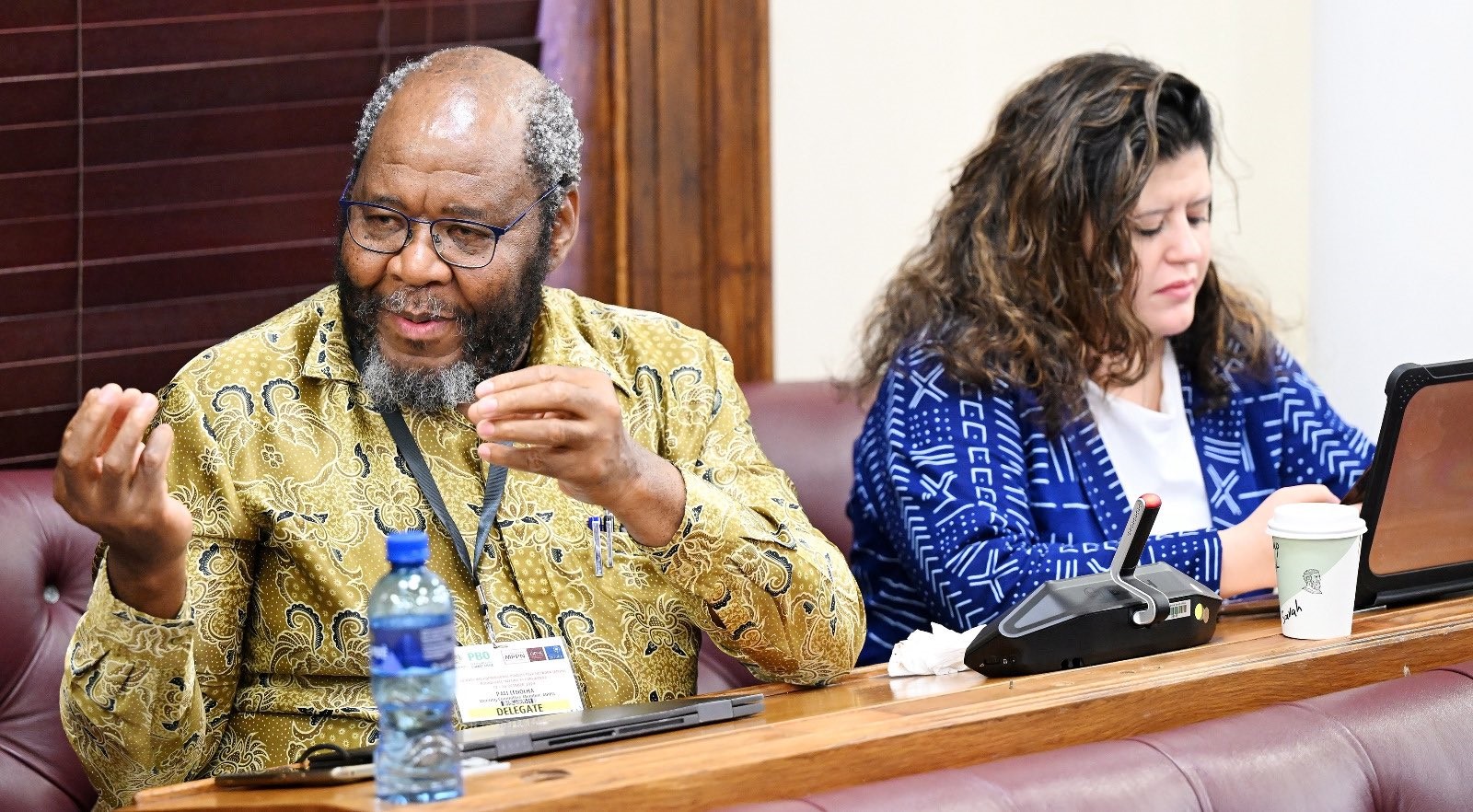Using MPIs to enhance oversight: MPPN Roundtable Discussion in South Africa
The Multidimensional Poverty Peer Network (MPPN) and the Parliamentary Budget Office (PBO) of the Republic of South Africa co-hosted an insightful Roundtable Discussion in Cape Town between 17 and 18 October.
Starting on the International Day for the Eradication of Poverty, the purpose of the event was to foster a national dialogue among stakeholders in South Africa to discuss best practices in using a Multidimensional Poverty Index (MPI) as an oversight tool to reduce poverty.
The PBO is a nonpartisan entity that provides independent research and analysis on the impact of the parliamentary budget on the economy, society, and public finances of South Africa.
Dr Dumisani Jantjies, PBO Director, described how the Roundtable brought participants together to discuss ways in which the budget could better address ‘poverty and its multidimensional facets’ and how oversight could ‘be improved to ensure better alignment between the budget and the social economic issues that are set out as a precursor to the budget’ using tools such as the MPI.
The event was attended by fifty leading experts including MPs, stakeholders from academia, the private sector, Civil Society Organisations and UN agencies and provided an opportunity to discuss opportunities for using multidimensional poverty analysis to address the interconnected challenges of poverty in South Africa.
Executive Director of OPHI, Corinne Mitchell, said of the Roundtable Discussion: ‘Statistics like the MPI can give policymakers the tools to make more informed policies that better reflect the concerns of people living in poverty.’
In early 2014, Statistics South Africa produced a national Multidimensional Poverty Index (MPI) known as the South African Multidimensional Poverty Index (or SAMPI). The measure used census data and was designed to complement the monetary measures of poverty already used in the country.
During the event, Statistics South Africa described potential plans to improve multidimensional poverty data in South Africa through incorporating the SAMPI into household surveys for more frequent updates. They also discussed revising the SAMPI indicators to augment those used for health and to add insights on the environment.
The event served to highlight the multiple ways in the which the SAMPI can be institutionalised to guide parliamentary planning processes so that, in the words of the former Statistician-General of South Africa, Dr Pali Lehohla, ‘those who have oversight can now actually have foresight’ and use the MPI to track the effectiveness of public spending.
Key discussions also included the greater involvement of CSOs in policy planning, the importance of a human rights approach in addressing poverty and inequality in South Africa, the potential of MPI for fostering the implementation of Agenda 2063, and collaborations with the private sector at the community level.
The Roundtable served to increase the awareness of a multidimensional approach to poverty reduction and identified several pathways for using MPI as a high-impact policy tool.
Programme
Presentations from the event
- Sabina Alkire, OPHI Director - Evolution of MPI as a global standard
- Corinne Mitchell, Executive Director, OPHI - National Practices of Multidimensional Poverty as a Policy Tool
- Solly Molayi, Acting DDG: Population & Social Statistics, Stats SA - Poverty Measures - SAMPI
- Corinne Mitchell, Executive Director, OPHI - Workshop on MPI
- Dr Asghar Adelzadeh, Director and Chief Economic Modeller, Applied Development Research Solutions (ADRS) - Forward Looking Model of Multidimensional Poverty for South Africa
- Dr Shanelle van der Berg - Regional Office for Southern Africa, United Nations Human Rights, Office of the High Commissioner, Exploring a human rights economy to address poverty and inequality in South Africa
- Ms Sara Hamouda, Continental and Global Governance Division, M&E Directorate - Aligning the Multi-Poverty Index (MPI) With Agenda 2063 for the Second-Ten Year Implementation Plan
Videos of the event
- Recording of 17th October
- Recording of 18th October
- Recording of Dr Dumisani Jantjies reflections on the MPPN Roundtable Discussions
Summary report

OPHI Research Associate, Dr Pali Lehohla, addressing attendees at the MPPN Roundtable in South Africa.


